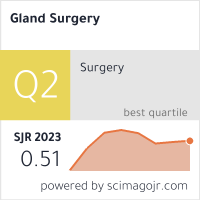COLLABORATIVE CLINICAL PRACTICE ACROSS HEALTHCARE SPECIALTIES: INSIGHTS FROM DENTAL, NURSING, LABORATORY, AND MEDICAL RECORDS TEAMS IN SECURITY FORCES FACILITIES
Keywords:
Interprofessional collaboration, healthcare teams, security forces facilities, communication, patient care, mixed-methods.Abstract
Background:
Effective interprofessional collaboration is essential for delivering high-quality healthcare, particularly in complex institutional settings. Security forces medical facilities present unique challenges due to hierarchical structures, confidentiality protocols, and departmental silos, which may hinder communication and coordinated care.
Objective:
This study investigates the nature, effectiveness, and barriers to collaboration among dental, nursing, laboratory, and medical records teams within security-focused healthcare institutions.
Methods:
A mixed-methods explanatory sequential design was employed. The quantitative phase involved a structured survey administered to 120 professionals across four departments, assessing collaboration, communication, integration, and efficiency. Data were analyzed using descriptive statistics, Pearson correlation, and regression analysis. In the qualitative phase, semi-structured interviews with 16 participants were thematically analyzed to deepen understanding of systemic and interpersonal dynamics.
Results:
Quantitative findings revealed moderate-to-high collaboration levels, with communication significantly predicting perceived efficiency (β = 0.47, p < 0.001). Nurses reported the highest collaboration scores, while medical records personnel showed the lowest. Thematic analysis identified four key barriers: communication disconnects, record redundancy, reliance on informal workarounds, and inconsistent leadership support. Departments with structured briefings and proactive leadership demonstrated smoother integration.
Conclusion:
Collaboration within security-based medical settings is marked by professional willingness but constrained by institutional structures. Enhancing interdepartmental communication, clarifying roles, and adopting secure interoperable systems are essential for strengthening teamwork. The study offers a context-sensitive framework for improving collaboration and patient care quality in highly regulated healthcare environments.





